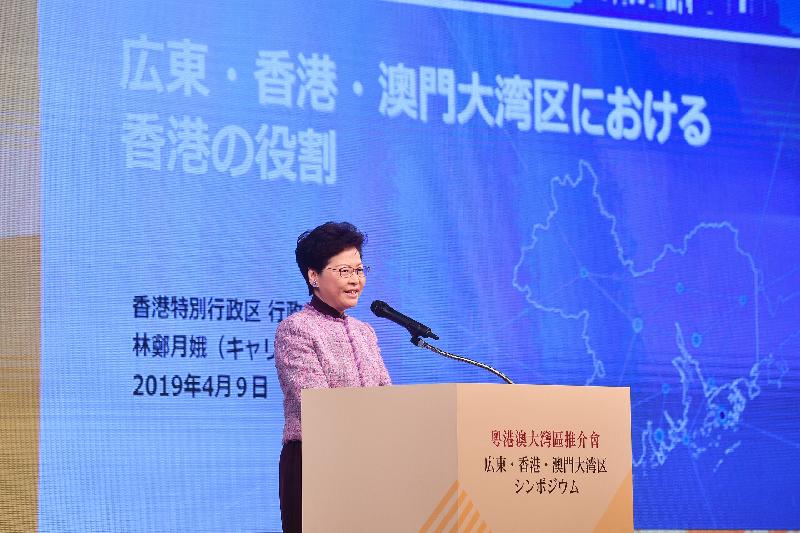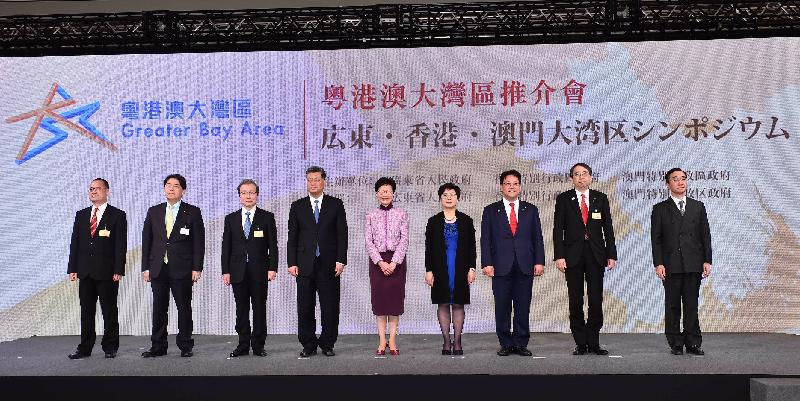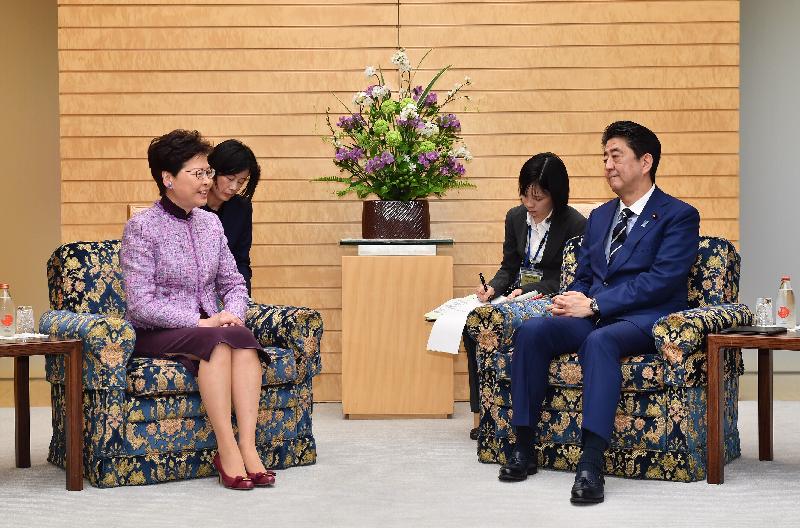Following is the English translation of the speech by the Secretary for Financial Services and the Treasury, Mr James Lau, on public finance at the special meeting of the Legislative Council (LegCo) Finance Committee today (April 9):
Chairman and Honourable Members,
This session of the special meetings of the Finance Committee will examine the expenditure estimates of the Treasury Branch and related departments. The policy areas under the Treasury Branch's purview cover revenue and financial control, provision of central support services within the Government and maintenance of government properties. Before the question session begins, I would like to brief Members on a few points.
Estimates of Expenditure
The estimated total expenditure of the Treasury Branch and departments under its purview for 2019-20 is $9.785 billion. The amount represents an increase of $1.306 billion (around 15.4 per cent) over the original estimate of last year.
Key Areas of Work in the Coming Year
As regards our work in the coming year, I would like to brief Members on the following key areas.
On public finances, we will continue to adhere to the new fiscal philosophy of the current-term Government by following the principle of fiscal prudence to ensure healthy public finances, as well as adopting forward-looking and strategic principles in resource management and allocation in support of government policies to invest for Hong Kong and relieve people's burden.
On international tax co-operation, we conducted the first automatic exchange of financial account information in tax matters with the relevant tax jurisdictions last year, and are progressively implementing the minimum standards of the package to counter base erosion and profit shifting by enterprises. We will ensure that Hong Kong complies with the relevant international requirements on tax co-operation. Furthermore, we will continue to expand Hong Kong's network of Comprehensive Avoidance of Double Taxation Agreements (CDTAs). So far, Hong Kong has signed 40 CDTAs, and negotiations with 15 tax jurisdictions are under way. Our target is to bring the total number of CDTAs to 50 over the next few years.
The Tax Policy Unit was set up in April 2017, with its priority being to capitalise on the tax policy to facilitate the development of Hong Kong's industries and economy. It has so far assisted in implementing tax measures such as the two-tiered profits tax rates regime and the provision of enhanced tax deduction for research and development expenditure. It has also worked with other bureaux to study tax measures in their policy areas, for example, insurance and ship leasing business. With global requirements and competition in taxation matters becoming more complex and Hong Kong moving towards a diversified economy, the Government will closely monitor international developments on tax requirements and ensure compliance, while introducing tax measures strategically to enhance Hong Kong's competitiveness and ensure stability of our tax revenue. To better support the Government's work on the overall economic development of Hong Kong, the Unit will come directly under the Financial Secretary's Office starting from July this year. The Financial Services and the Treasury Bureau (FSTB) and the Inland Revenue Department will work closely with the Unit in an effort to formulate the tax policy that can safeguard a stable income for the Government on one hand, and cater for the development needs of Hong Kong's industries and economy on the other.
On government procurement, we have implemented two new policies from April this year, the first one being pro-innovation government procurement policy. To promote the development of innovation and technology (I&T), the Government introduced the pro-innovation government procurement policy and arrangements from April 1, which aim to promote the adoption of innovative suggestions and facilitate the participation of enterprises, including start-ups and small and medium enterprises (SMEs), in government procurement. Government departments will make wider use of marking schemes, consider both quality and price of tenders, and increase the weighting for quality in tender evaluation. Under the new policy, a weighting of at least 50 per cent or even 70 per cent will be given to quality in general. In addition, certain marks will have to be set aside for assessing innovative suggestions, so that innovative tenders will stand a better chance of success. In parallel, the government departments concerned will roll out measures to enhance exchange with the I&T sector and dissemination of information to facilitate the participation of I&T start-ups and SMEs in government procurement, as well as to equip government departments with a better understanding and knowledge of I&T development in the market. We will, in collaboration with the Government Logistics Department, oversee the implementation of the new policy.
The second new policy on procurement is the enhanced protection for non-skilled workers. Following a review conducted by a working group led by the Labour and Welfare Bureau, the Government has implemented new measures in respect of service contracts that rely heavily on the deployment of non-skilled workers starting from April this year in a bid to enhance protection for such workers. The measures include increasing the weighting for wage level as an assessment criterion in the technical assessment, encouraging departments to adopt a tenure of not less than three years for the service contracts where practicable, and requiring government service contractors to provide such employment benefits as contractual gratuities and extra pay for working when typhoon signal No. 8 or above is in force. We will maintain communication with the Labour Department and the procuring departments to monitor the implementation of the measures.
On property management, the Government Property Agency (GPA) will enhance its role in providing central support services to support government policies in different areas in the coming year. First, in collaboration with the relevant departments, the GPA will vigorously promote the "single site, multiple use" model in multi-storey developments, steer and take forward multi-storey development projects with cross-bureaux facilities, and expedite their delivery through enhanced internal co-ordination. The Development Bureau and the FSTB will jointly provide the necessary policy support.
Second, in line with the Government's policy objective to build a caring society, the GPA has introduced new leasing arrangements. From 2019 onwards, when assisting departments in leasing government properties, the GPA will, where suitable, give priority to applications by non-governmental organisations and social enterprises which have obtained policy support. This will facilitate the provision of social services by the organisations concerned.
Moreover, the GPA will step up its property management work by gradually taking charge of the management of the facilities at border control points. This, coupled with the completion of new government offices and properties, will bring about a marked increase in the GPA's workload in such areas as property management and support services. The resources required for 2019-20 have already been reflected in the GPA's Head of Expenditure.
Chairman, my colleagues and I will be happy to answer any questions from Members.



